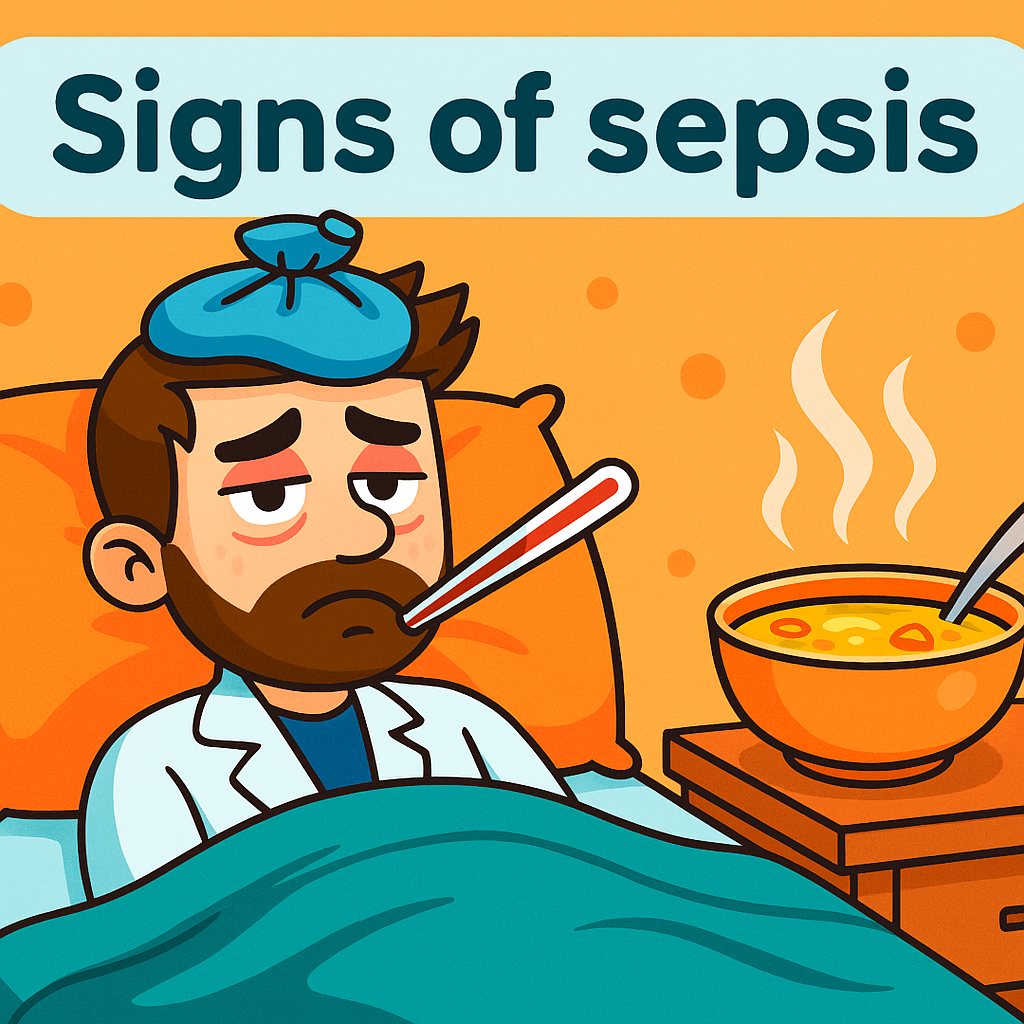Five Subtle Signs of Sepsis You Shouldn't Ignore 🚨
Sepsis doesn't always knock loudly at your door 🚪 - sometimes it just rings the doorbell and hides! Discover the 5 sneaky signs that could save your life
9/12/20253 min read


Five Subtle Signs of Sepsis You Shouldn't Ignore 🚨
Sepsis is a serious condition that happens when your body's response to infection causes damage to your own tissues. While many people think fever is the main warning sign, the truth is that sepsis often shows up in more subtle ways. As healthcare professionals, we've learned a lot about sepsis care over the last 20 years, and early recognition can truly save lives.
At Banner Gateway Medical Center, we're proud of our commitment to excellent sepsis care. Our team recently won the Zero Harm Award in September 2025 for our dedication to this critical area of medicine. We've improved our sepsis scores to well above the national average because we know how important it is to catch these signs early. 🏆
Here are five subtle signs of sepsis that everyone should know:
1. Abnormal Vital Signs (Especially Fast Heart Rate) 💓
Most people think of fever first when it comes to infection, and many doctors and nurses do too. But here's the surprising truth: fever isn't as common as you might think with sepsis. In fact, focusing only on fever can sometimes lead us away from recognizing a septic patient who doesn't have one.
What to watch for instead: A fast heart rate (tachycardia) is often more telling than temperature. If your heart is racing without an obvious reason like exercise or stress, it could be your body's way of responding to infection.
2. Confusion or Not Acting Right 🤔
This is one of the most important signs, especially in older adults. When someone just isn't acting like themselves - they seem confused, disoriented, or "off" - it could be a sign of sepsis.
Here's something interesting: For people over 60, the typical symptoms of common infections, such as urinary tract infections, often don't appear. Instead of the typical symptoms of burning or frequent urination, they might simply appear confused. Many families rush to the hospital worried about a stroke, but often the real culprit is delirium from a UTI or pneumonia that's progressed to sepsis.
3. Unusual Weakness and Fatigue 😴
We all get tired, but sepsis-related fatigue is different. It's the kind of weakness that comes on suddenly or feels much worse than normal tiredness. Think of it like your body's battery suddenly draining much faster than usual - your body is working overtime to fight infection, which can leave you feeling completely drained.
If you or a loved one suddenly feels extremely weak or fatigued without a clear reason, especially along with other symptoms, it's worth getting checked out.
4. Chills and Shaking 🥶
If you're shaking or sweating when the air conditioning is running, this could signal a bacterial infection. Chills that make you shake uncontrollably - what we call "rigors" in medicine - are never normal.
This happens because your body is trying to raise its temperature to fight infection. Even if you don't have a fever, these chills and shaking spells are important warning signs that shouldn't be ignored.
5. Just Not Feeling Right 🤷♀️
Sometimes the most subtle sign is also the most important one: that gut feeling that something isn't right. Your body is like a smoke detector; it often knows when something is wrong before specific symptoms appear.
Trust your instincts. If you feel significantly worse than usual, especially if you have any combination of the signs above, don't hesitate to seek medical care.
Why Early Recognition Matters ⏰
Sepsis care has changed dramatically over the last 20 years. It's now one of the main clinical measures that hospitals track and report. At MD Anderson, the attached cancer center, we frequently encounter sepsis, so it remains at the forefront of our minds.
The key is catching sepsis early. When we recognize these subtle signs promptly, we can initiate treatment sooner, which makes a significant difference in outcomes.
When to Seek Help 🏥
If you notice any combination of these signs, especially in older adults or people with chronic health conditions, don't wait. Go to the emergency room or call your doctor right away.
Remember: sepsis can happen to anyone, but it's more common in people with weakened immune systems, chronic illnesses, or those who are very young or older than 65.
The Important Thing to Remember 💡
Sepsis doesn't always announce itself with obvious symptoms like high fever. By knowing these subtle signs, you can be an advocate for yourself and your loved ones. Early recognition and treatment save lives - and that's something we're passionate about at Banner Gateway Medical Center.
Trust your instincts, know these warning signs, and never hesitate to seek medical care when something doesn't feel right. Your quick action could make all the difference. ✨